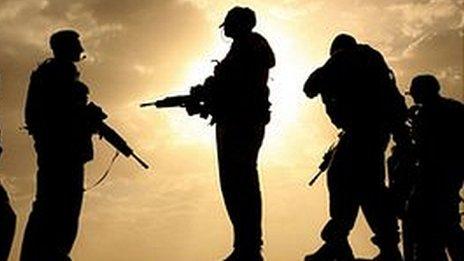Sangin 'on verge of falling back into Afghan Taliban hands'
- Published
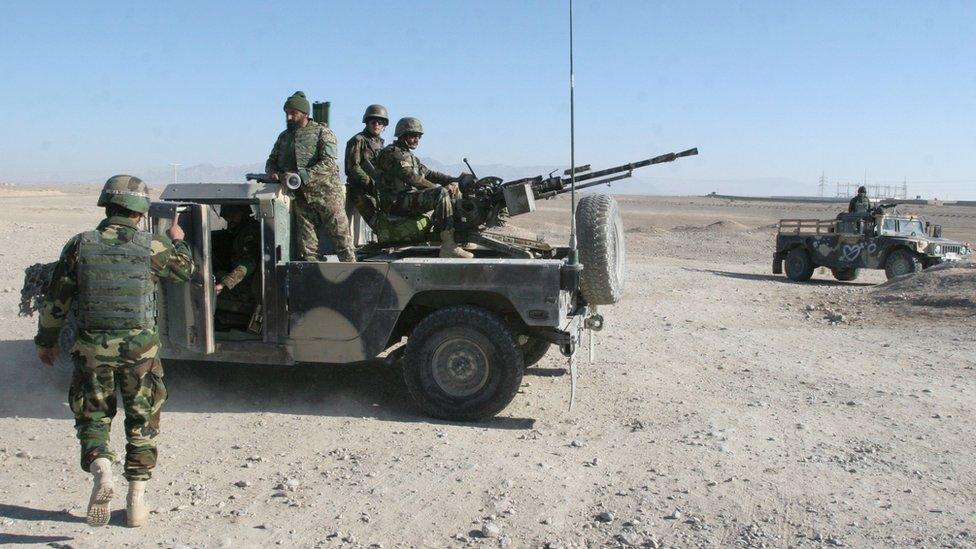
Afghan forces now control just a few square kilometres of Sangin City, the BBC understands
The key district of Sangin in the southern Afghan province of Helmand is once again on the verge of being overrun by the Taliban, according to an Afghan army commander.
The commander, who wishes to remain anonymous, told the BBC that most of the district had already been taken.
He said the Afghan government now controls just a few square kilometres of Sangin city.
The Afghan army and local governor's office dismissed the claims.
A spokesman for the Helmand governor acknowledged there had been security problems in the past but said there was no "serious threat" that could lead to the fall of Sangin.
The unnamed commander warned that even the remaining areas under government control were under imminent threat.
Almost a quarter of British military personnel killed during the UK's combat mission in Afghanistan died defending Sangin.
There were reports in December last year that the district was almost entirely in Taliban hands but since then the Afghan government has sent in reinforcements.
Government officials have repeatedly asserted that, despite the continuing Taliban assault, Sangin is secure. The commander, however, paints a very different picture.
No reinforcements
Speaking via satellite phone, he told the BBC's Mahfouz Zubaide in Kabul that there had been repeated Taliban attacks on the remaining government positions in recent days, killing a number of soldiers.
Eight Afghan soldiers were killed and nine were taken alive when the Taliban overran a base called "Sahra Yak" three days ago, he said.
All the weapons and ammunition were seized, including an armoured vehicle.
"Two other camps are also under threat, if they don't get the support needed, God forbid, they will have the same fate," he said.
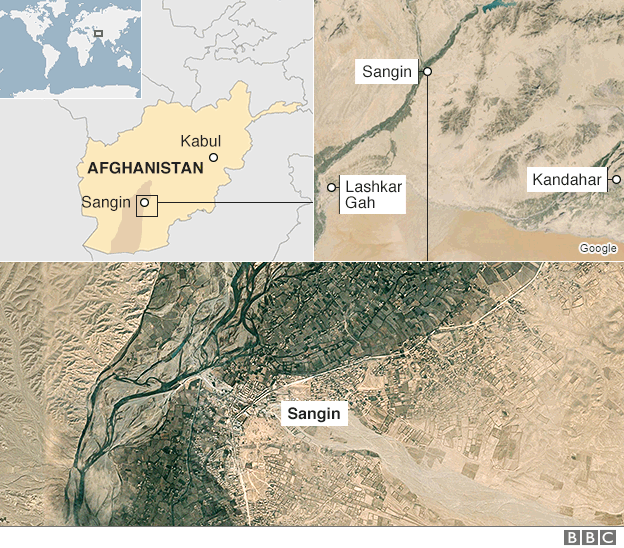
The commander claims there have been no reinforcements for days and rations are low.
"It is the fourth day that one dead body is with us, and four wounded in the past week," he said. "It is the tenth day that we eat only dry bread, borrowing it from the local police."
He said that even in Sangin city the Afghan army only controls a few key locations. The rest, including the bazaar, are in Taliban hands.
The commander says the perilous situation in Sangin is well-known within the Afghan command: "Our superiors all know, including the commander of the brigade and the Army's chief of staff."
In response, Mohammad Rasul, who commands the 215 Afghan National Army, acknowledged the bazaar was in Taliban hands but said army forces were still in the district.
He said food and ammunition were delivered to the forces by air and that casualties were evacuated on time.
Desperate situation
The latest reported setbacks come despite a big increase in support from international forces, with ground troops and airpower committed to the battle in Helmand.
The Nato combat mission in Afghanistan officially ended just over a year ago but in recent weeks foreign troops have increasingly been been drawn back into the conflict.
Last month, a US Special Forces soldier was killed and two were injured fighting the Taliban in Helmand alongside Afghan troops.
The commander knows he is taking a grave risk by speaking to the BBC. "What I'm telling is against the army regulations," he said. "It is a crime amongst the military personnel, but this is how desperate we have become."
A few weeks ago the deputy governor of Helmand province, Mohammad Jan Rasoolyar, was sacked after he posted an open letter to Afghan President Ashraf Ghani's government on Facebook.
His complaints were very similar. He said the military and police forces in Sangin were short of ammunition and food and were encircled by Taliban fighters.
Despite his urgent pleas, the government had done nothing to help, he said.
- Published21 December 2015
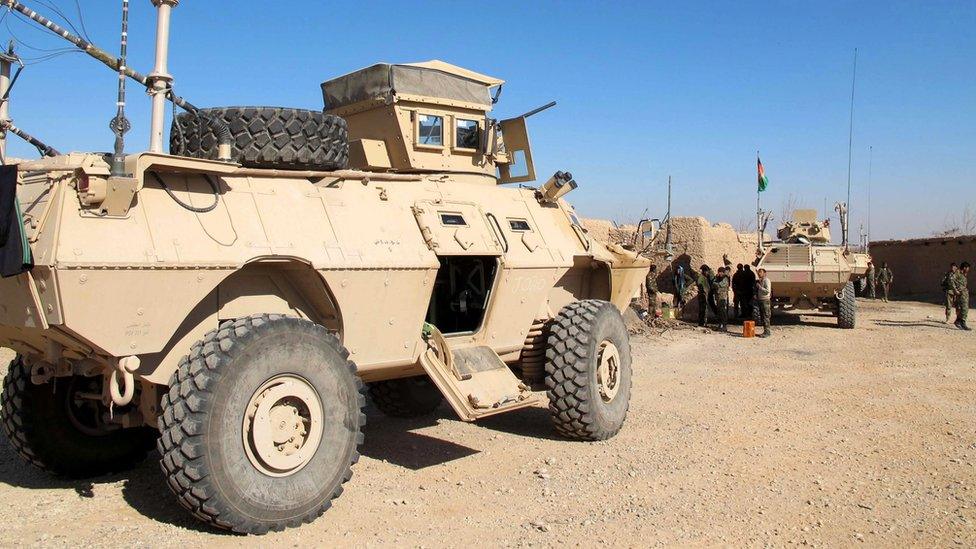
- Published13 January 2016
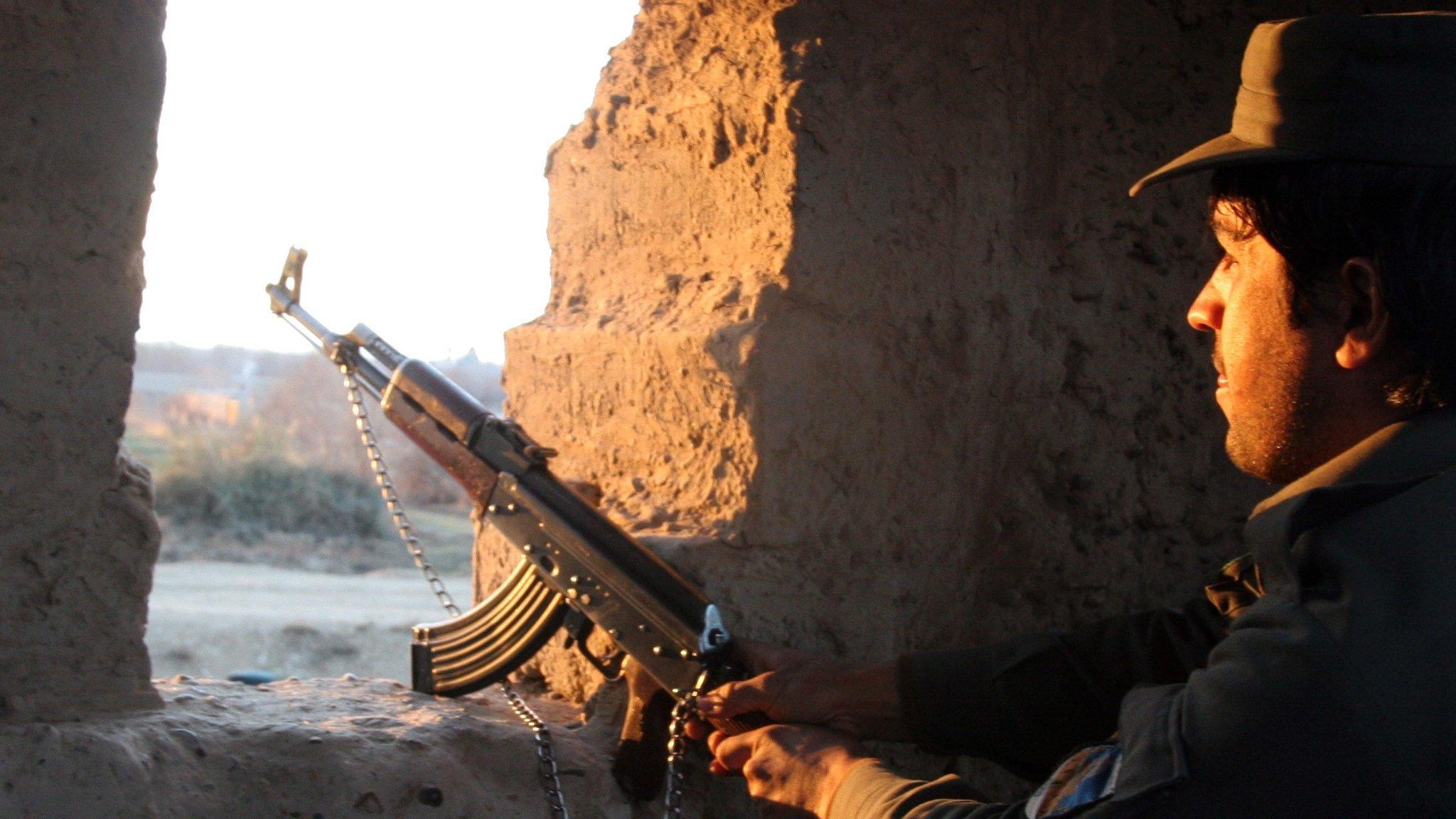
- Published25 January 2016
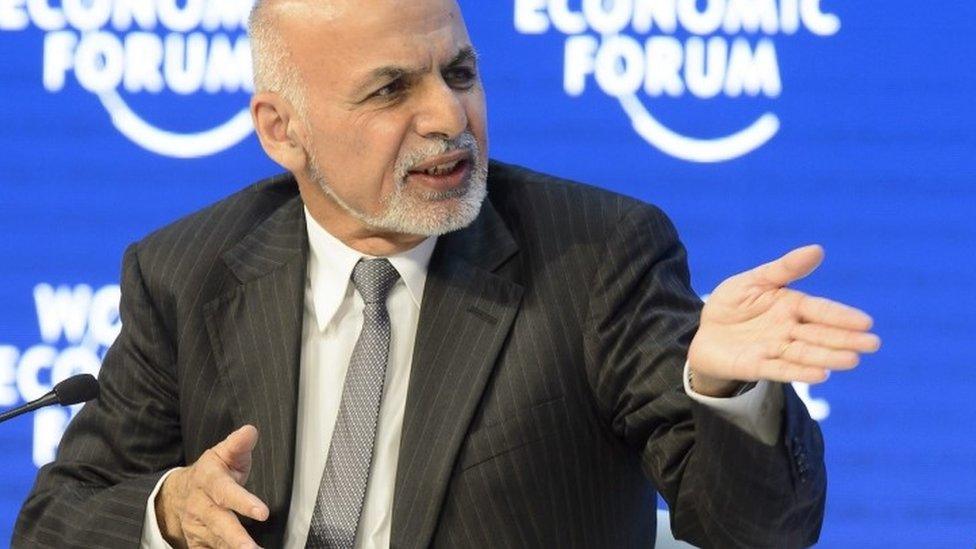
- Published28 July 2013
